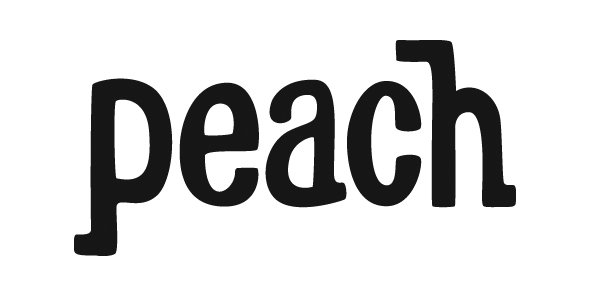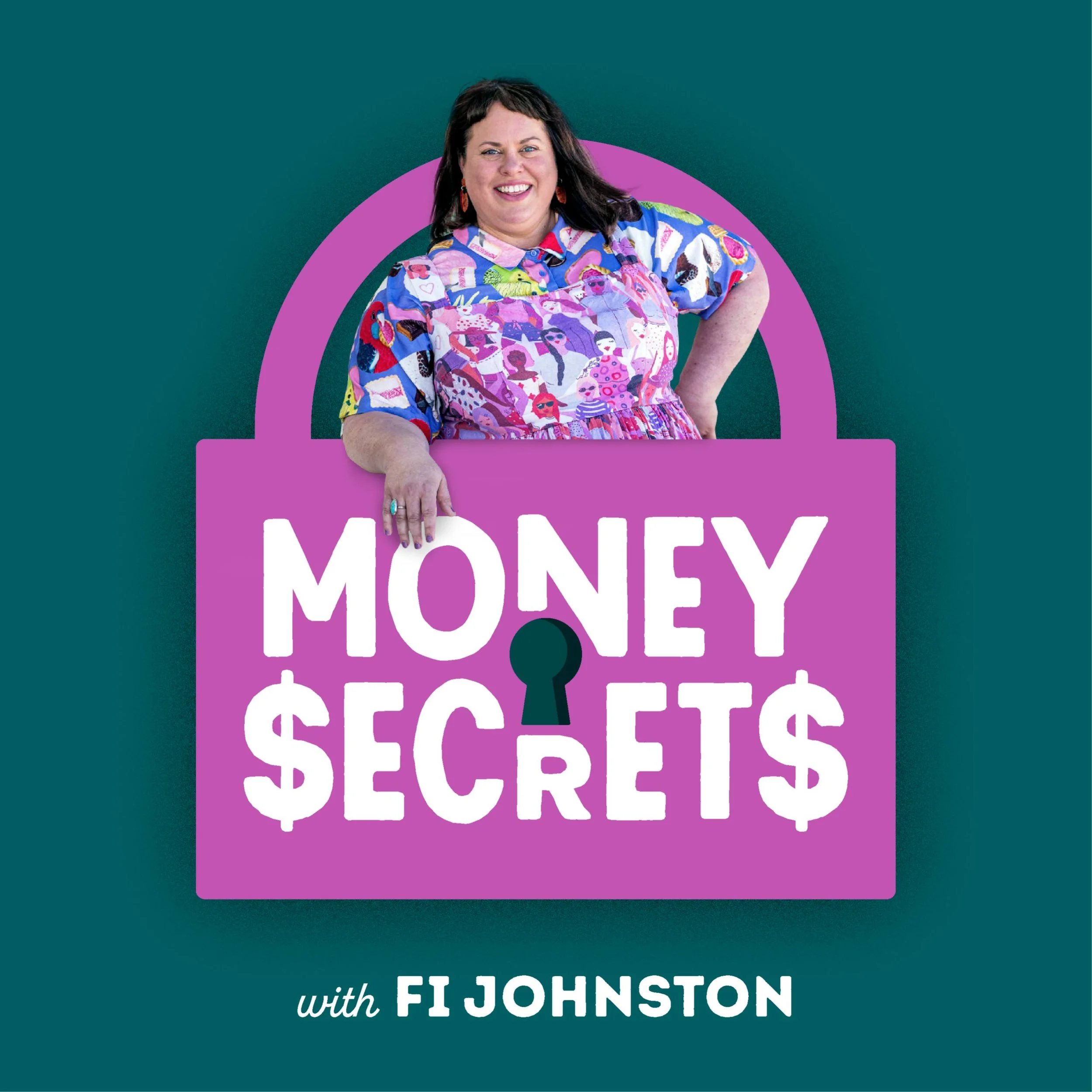Business Lessons (and a love letter) to The Bear
What The Bear teaches us about small business. It might sound like a TV review—but this episode is part strategy, part storytime, part love letter to The Bear (and its soundtrack). If you’ve ever wondered why running a business feels so intense—or how to do it with more intention—this episode will hit just right.
In this week’s episode, Fi dives into one of her all-time favourite shows, The Bear, and breaks down the small business lessons hiding in the stress, the shouting, and the sandwiches. From pricing and pressure to team dynamics, mental health, and the sneaky parts of your business that are quietly profitable, this is a deep (and very fun) look at how small businesses actually work—and where they go wrong.
You don’t need to have watched the show to get something out of this one. But if you have watched it… you're going to feel very seen.
Listen to Episode 36
What You’ll Learn in This Episode
Why change in small business is hard—and what happens when a new owner (like Carmy) tries to do everything at once without bringing the team along.
The real cost of clinging to your OG customers, keeping prices frozen in time, and resisting innovation in the name of loyalty.
Why efficiency doesn’t just come from better systems—it comes from team buy-in, shared goals, and clear communication.
The connection between mental ill health and a failing business—and why prioritising your wellbeing is essential (not optional).
What happens when your business goes viral before you're ready, and why a sudden surge in demand isn’t always a good thing.
Passion vs. workaholism: how to recognise when your drive is tipping into burnout territory.
When the “sexy” part of your business (the one that gets attention) is secretly draining your time, money and energy—while the quiet, boring bit is actually profitable.
What to think about before changing your business model—like who you serve, how you make money, and what skills your team really needs.
Why the pursuit of excellence often comes with discomfort—and why being liked by everyone isn’t the goal
What Sid teaches us about leadership—and how listening first can change everything about how your team shows up
Why acts of service matter—and how being of genuine help to your clients can be your most powerful business strategy.
Business Lessons (and a love letter) to The Bear
Money Secrets Podcast – Episode 36
Introduction
We've made a lot of progress as a society in many areas, but one thing that hasn’t changed enough is our relationship with money. If we want to tip the scales in favour of marginalised people, we need to understand the secrets to making money in small business.
The more we talk about money — especially the secrets that usually stay behind closed doors or on the golf course — the more empowered we become. My mission is to get more money into the hands of good people, specifically business owners like you.
Because I believe small business can change the world. And to do that, we need to be making more money.
Acknowledgement of Country
This episode was recorded on the lands of the Wurundjeri People of the Kulin Nation. I’d like to acknowledge them as the Traditional Owners and custodians of this land and water that I live, work and play on.
I pay my respects to Elders past and present, and recognise that sovereignty has never been ceded. This always was, and always will be, Aboriginal and Torres Strait Islander land.
Why a TV Drama About a Sandwich Shop Is Full of Business Gold
Hi, it’s Fi here—chartered accountant, money coach, and host of the Money Secrets podcast.
Today, I’m doing something a little different: sharing the small business lessons I pulled from one of my all-time favourite TV shows—The Bear.
Yes, it’s stressful. Yes, it’s chaotic. Yes, the soundtrack is everything. But more than anything, it’s rich with insight for small business owners—especially those of us who are navigating change, pressure, team dynamics, pricing decisions, and the ever-present tension between passion and burnout.
What The Bear Is All About
The Bear follows Carmy, an award-winning fine dining chef who returns home to Chicago to take over his late brother’s run-down sandwich shop. He inherits unpaid bills, broken equipment, a wildly dysfunctional team, and a lot of personal grief.
The show is beautifully shot, wildly intense, and somehow manages to be both character-driven and plot-driven. If you haven't watched it yet, prepare to be hooked (and maybe a little emotionally wrecked).
1. Change Is Hard—Especially for Your OG Clients
When Carmy tries to update the systems in the restaurant, his cousin Richie resists. He’s loyal to the “way it’s always been done” and doesn’t want to upset the original customers.
Sound familiar? I see this all the time in small business—especially when owners hesitate to evolve out of fear of losing long-term clients. But if you never raise your prices, improve your marketing, or upgrade your offering, your business will stay stuck in chaos and underperformance.
2. Efficiency Without Communication Fails
Carmy has Michelin-star experience and wants to introduce structure and systems—but he fails to communicate his vision. The team gets frustrated and defensive because they aren’t included in the journey.
Lesson? When leading change, bring your team along. Explain the why, listen to their concerns, and give them ownership in the process.
3. The Stress of Small Business Is Real
Few shows capture the visceral stress of running a small business like The Bear. The kitchen tension? The chaos? The overwhelm? That’s real.
What small biz owners often forget is that stress can destroy good decision-making. If I could sit Carmy down, I’d tell him: slow down, take a day off, regroup the team, and plan intentionally. Sometimes hitting pause costs less than charging forward under pressure.
Good Money Club
Are you a female or LGBTQIA+ business owner who wants to make more money and create meaningful change? My 6-month program, Good Money Club, is designed to help you do exactly that.
We work on your pricing, positioning, business model, and mindset — so you can build your bank account and your impact. Read more about Good Money Club.
4. Doing Things the Hard Way (When There's a Simpler Path)
Rather than hiring professionals to help prepare for inspections or fix things properly, the team duct-tapes everything together—literally and figuratively.
So many business owners do this. You might be trying to save money, but doing everything yourself when you're not qualified only delays progress and increases risk.
5. Going Viral Before You're Ready = Disaster
Sid unknowingly serves a food critic a test dish. The rave review explodes online, and the restaurant gets slammed with orders. But they aren’t prepared—no stock, no systems, no plan—cue total meltdown.
Virality sounds dreamy, but it can break a small business if you’re not set up for scale. Focus on consistency and readiness before chasing (or accidentally finding) your “viral” moment.
6. Team Members Working on Their Own Agendas
Before the team aligns, every chef is off doing their own thing. Sound familiar?
Without clear priorities and communication, team members start operating in silos. That’s a recipe for disaster. Set a vision, clarify the goals, and make sure everyone’s working toward the same outcome.
7. Pressure Management Is a Business Skill
Stress is inevitable in small business. What matters is how you deal with it.
From breathing techniques and walking in nature to therapy, exercise, and community support—developing personal tools to manage pressure will directly impact your business outcomes.
8. Family Business = Extra Dynamics
Carmy’s family trauma bleeds into the business. If you’ve worked in or taken over a family business, you’ll know it brings extra layers—emotionally, structurally, and strategically.
My advice? Treat family members like team members:
Define roles and responsibilities
Set boundaries
Get objective external advisors
9. Mental Ill Health and Small Business Don't Mix Well
Carmy, Richie, and others are clearly struggling with mental health. And it’s heartbreaking—but common.
Whether mental health challenges are causing the business struggles, or the business is causing the mental health challenges—it’s a vicious cycle. Prioritise support, seek help early, and remember: a healthier business starts with a healthier you.
10. Desperate for Cash? Don’t Let the Wrong Client In
The team books a chaotic bucks party just to make money—and it nearly ruins everything.
When we’re desperate, we sometimes say yes to the wrong clients. But short-term money at the expense of long-term health is not worth it. Focus your energy on attracting the right-fit customers instead.
11. Changing Business Models? Tread Carefully
Transitioning from the beef sandwich shop (The Beef) to a fine dining restaurant (The Bear) is a huge leap—and comes with massive financial, operational, and identity shifts.
Before you change your business model, ask:
Can I financially afford this change?
What new skills will I need on my team?
How will this shift impact my role?
Am I doing this for impact—or for ego?
12. The Hidden Profit in the Simple Things
Here’s the kicker: The Bear is flashy and unprofitable. The Beef—a little sandwich window—is simple, consistent, and actually makes money.
So many small businesses ignore the low-key, profitable offers because they’re not shiny enough. But boring doesn’t mean bad. It often means bankable.
13. Passion or Workaholism?
We call ourselves “passionate.” We work late. We push hard. We obsess.
But sometimes that passion is just masked workaholism. Be honest with yourself: are you creating from joy, or are you addicted to overworking?
14. Excellence Requires Effort—and Discomfort
Perfection doesn’t exist. But excellence? That’s worth chasing.
Carmy wants to lead with excellence, even if it means being disliked. And it works—but it’s hard. Building a culture of high standards takes time, communication, and serious emotional resilience.
15. Leadership Through Listening
Sid is the voice of reason—she listens, leads with empathy, and earns trust.
Great leaders don’t just give orders. They tune in. They make space. They stay open. We could all lead a little more like Sid.
16. Small Business Is About Acts of Service
Ultimately, what shines in The Bear is the team’s deep desire to take care of people.
That’s what small business is about—meeting unmet needs, improving people’s lives, and giving a damn. Making money matters, but impact matters more.
Final Thoughts (and a Soundtrack Recommendation)
I hope this episode gave you a new way to see business—not just as a spreadsheet exercise, but as a creative, complex, messy act of service.
And if you haven’t watched The Bear yet, do it. The characters are rich, the writing is tight, and the soundtrack is a masterpiece—featuring Pearl Jam, Smashing Pumpkins, Radiohead, Wilco, and more.
Thanks for being here. Now go take care of yourself—and your business.
Outro
Thank you for listening to Money Secrets. If you loved this episode, please subscribe, share it with a friend, or leave a review. Your support helps us get these conversations into the hands of more good people who deserve to thrive in business.
We’ve come so far as a society in many ways, but money is one of the areas where progress hasn’t been enough. If we want to tip the scales in favour of marginalised people, it starts with understanding the secret: money in small business.
In this podcast, Money Secrets, host Fiona (Fi) Johnston—Chartered Accountant, small business advocate, and impact enthusiast—dives into the conversations we need to have about money. The secrets that once stayed behind closed doors (or on the golf course) are finally out in the open.
Fi’s mission? To get more money into the hands of good people, like you. She believes small businesses have the power to change the world, and the key to making a bigger impact is to make—and manage—more money.
________________________________________________________________________
Thank you to everyone involved for bringing this podcast together. We are excited to hear from you with any questions, feedback or suggestions for future episodes that you might have. Send a Direct Message to @peach.business
If you are excited for what’s to come, please like this episode, follow the podcast and share it with your friends. We are thrilled you're here.
Want to find out more about Good Money Club? It's for female and non-binary business owners ready to make more money and impact. Join us?
Check out my FREE Pricing Training you need to set your prices for profitability.
________________________________________________________________________
This podcast episode was recorded on the lands of the Wurundjeri People of the Kulin Nation and I'd like to acknowledge them as the Traditional Owners and custodians of this land and water that I live, work and play on. I'd like to pay respect to elders both past and present, and note that sovereignty has never been ceded. This always was and always will be Aboriginal and Torres Strait Islander land.
Enjoyed this episode?
Subscribe to Money Secrets on your favourite platform so you never miss an insight:
If this episode helped you shift your thinking, I’d love it if you left a review — it helps more small business owners discover the show, and I read every single one.
Have questions or ideas for future episodes? Send me a DM over at @peach.business on Instagram. I’d love to hear from you.
Ready to take this work further?
Join the Good Money Club — my 6-month experience for business owners ready to earn more and make a bigger impact.



